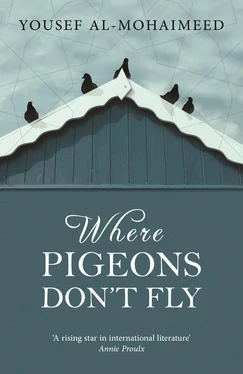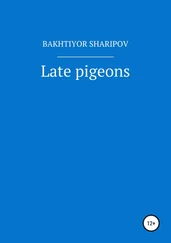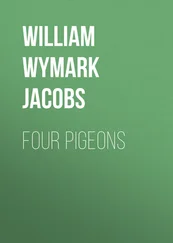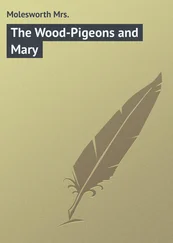— 63 —
INSIDE THE LOCKED OFFICE in the Committee building, Tarfah contemplated her moment of shame. She imagined what might have happened had they taken her to the women’s shelter and placed her on the register, to spend the following day sitting in front of a sheikh with knotted brows who would question her about the crime of going out to drink cappuccino with a stranger. She imagined the supervisor calling her broken-hearted mother to inform her of the incident, requesting that her father come to pick her up:
Her mother is completely thrown and decides not to tell Abdullah for fear that he might lose his temper and exact revenge on his sister. She hastily rounds up Ayman and the two of them drive off, following the supervisor’s directions. They lose their way more than once and Ayman pulls over to question passers-by, once by the Passport Office and once by the Girls’ Education building, asking them if they know where the women’s shelter is.
When they arrive, her mother goes in to see the supervisor and requests that she might take her home.
‘Not allowed, auntie!’
‘I’m her mother!’
‘Sorry, only her father can pick her up.’
‘Her father’s dead, my girl.’
‘Well, her legal guardian, then, and he has to bring the original of his custody document and a picture of the girl.’
‘Her brother’s the guardian!’ says her mother, then adds, ‘Her brother’s outside with the security guard.’
‘Does he have a court-certified custody document in his name?’
‘No, her guardian’s the older brother.’
‘Then he has to come here and pick her up in person.’
Damn! It was as though they were arranging Tarfah’s death, quite blithely and in cold blood. Her mother imagines Abdullah coming with a killer’s calm taking her away — forgiving, understanding, affectionate — without mentioning the subject, as though he didn’t care. Then he would drive her home, apologising for having refused to let her study at the nursing college. But not to worry, a friend of his would make sure she was accepted on to the course. On the way, he would drive her to dark parking lot in the basement of some building, butcher her with a huge, razor-sharp knife and put her body into a black bag, which he’d heave on his shoulder and throw into a large yellow skip.
Tarfah imagined her mother contemplating her fate for a few moments, thinking of a way to get out of this fix.
‘Her older brother’s travelling,’ her mother says.
‘She’s stays with us until he’s safely home again.’
‘Listen, my girl, he’s gone abroad on a study trip. Anyway, Tarfah has a young daughter at home. She can’t sleep at night unless her mother holds her. God have mercy on your parents, my girl,’ she pleads. ‘God watch over you in this world and the next.’
Tarfah heard the rattle of a key in the lock and sat up, alert; she was in the Committee building, not the women’s shelter. Wrapped in serenity, the man in the cream mashlah entered in the company of a lightly bearded youth with shaven temples, who was holding a sheet of paper and a blue ink pad. The sheikh told her that the Committee would protect a guilty woman for a first offence but for a second offence — God forbid! — she would go to the women’s shelter and be handed over for questioning there. She might stay there for six months or a year, and if convicted and sentenced, she could be sent to women’s prison.
‘This is a pledge. Place your thumbprint here, promising not to commit any more offences against the law, and we will keep it safe with us, in complete confidentiality. We might need it again if, as I mentioned, you engage in any immoral act a second time.’
The sheikh turned to young man beside him. ‘Brother Saad will take your confession and help you sign it. I am going to call your family so they can sign for your release.’
The sheikh went out, leaving the door open behind him. The bearded youth approached, placed the sheet of paper in front of her and pointed at a sentence at the bottom of the page: Write your name here . He handed her the pen and she wrote her name, her hand shaking. He uncovered the damp blue fabric of the inkpad and placed it on the table beside her, then taking her full white hand, he spread her left thumb, pressed it on to the pad then held it next to her name for a few seconds, fondling her hand until she pulled it away from him. He coloured instantly.
‘So, what’s fine for him is forbidden for me?’ the young man said.
She scolded him, harsh and self-assured: ‘Fear your Lord, sheikh!’
She knew he was no sheikh, but wanted to give him a rank he respected and would be ashamed of dishonouring. Alarmed, he ran from the room and Tarfah rubbed her thumb against the underside of the table’s edge to remove the loathsome ink.
It made her weep bitterly when Ayman cried in front of her, repeating, ‘This is the end of my trust in you, Tarfah! I’m the only one who respects you and does what you ask, and now you put me in a situation like this.’
Although he was years younger than her, she could pull his head towards her and kiss him twice as she asked his forgiveness; he did not deserve her deceiving him.
‘You’re the only one who has been there for me after Dad died. I don’t have anyone but you. May God never take you from me.’
In the heat of her fervour she said, ‘I swear I’ll only leave the house to go to my grave!’
His mobile had not stopped ringing from one that afternoon and he eventually answered, telling his mother that he and Tarfah would be late because one of the doctors at the university had been suspended. Tarfah had called him several times from the college, he said, and when his mother asked, ‘Shall I send Abdullah, then?’ he had shouted, ‘No! I’m right outside the college. We’ll be home in a few minutes!’
Tarfah cried for a long time in the car. Ayman didn’t ask her who she had gone to the café with but she was unable to raise her beautiful eyes towards him when he sat with his siblings in the living room.
— 64 —
THE DUST WAS CHOKING Riyadh for a third day in succession. The moon’s disc struggled to be seen without any noticeable success. Everything in the city cried out for a lament, for pity.
Fahd was riding next to Saeed as they headed out to the café and feeling almost as if he might fly. He had picked up his British visa and here he was, on his way to meet friends and some other people Saeed had organized as a surprise.
Arriving he found a group, some of whom he knew and others he was meeting for the first time. Saeed introduced him to them one by one: ‘Firas: a friend from the neighbourhood. Saoud, you know: the general director of the Kanoun website. Omar’s an Islamic political activist; he’s been unemployed since he was fired for putting his name to a statement calling for political reform. Ziyad the Dwarf from middle school, the one with a woman’s voice. Ali Bin Abdel Lateef, first in the thaniwiya aama exams at the Najashi Secondary School. And Rashed.’
They sat down and Fahd ordered a pipe of Bahraini apple tobacco and scanned the printed menu, then became aware of the earnest conversation taking place around him. They were arguing with Omar, Saeed having a go at him because he was sitting with an atheist like Brother Firas who believed in nothing. Omar was making it clear that he still believed in the drive to institute reform in the country, even if it ended up fading away or smothered in the cradle. He believed Islam was the only route to this reform, though he rejected both what he called ‘Talibanised religion’ and the form of the faith propagated by the Council of Ministers.
Читать дальше












